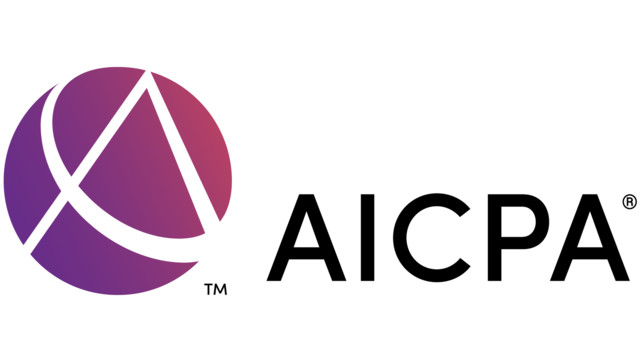AICPA News is a roundup of recent announcements from the association.
Survey Finds Flexible Work Arrangements Can Help CPA Firms Recruit and Retain Female Employees,
U.S. CPA firms that offer modified work arrangements have significant advantages in terms of recruiting and retaining female employees, according to new research by the American Institute of CPAs (AICPA).
Approximately half of firms surveyed reported that flexible schedules (56%), reduced hours (50%), compressed work schedules (49%) or telecommuting options (56%) helped attract employees, while about 80 percent of firms said those arrangements helped retain employees.
The AICPA’s biennial CPA Firm Gender Survey seeks to understand how firms are working to address gender disparities and advance women in the profession. In addition to asking about working arrangements, the survey also questioned firms about gender distribution on executive committees, formal programs to advance women, and succession planning.
The survey found that 39% of firms monitor pay parity between genders and 85% of those who monitor disparities took action to close gaps.
Additionally, one in five firms offered unconscious bias training, with 59% of the firms with more than 100 CPAs offering it.
Among other findings of the survey:
- The larger the firm, the more likely it is to have formal mentor and sponsorship programs to help advance women and minorities.
- Women in small firms (2-10 CPAs) comprise 53% of executive committees but only 16% of firms with more than 100 CPAs.
- An analysis of job titles found that women were nearly equally represented or outnumbered men in CPA firms through the senior manager level, after which the ratio declines.
- Only 44 percent of firms have a succession plan, down from 47% in 2017. But 6% included a gender component in their plan, up from 2%.
For more information about gender initiatives and other resources, visit aicpa.org/womenlead.
Emotional Stress of Elder Fraud Outweighs Financial Impact: AICPA Survey
A new survey from the AICPA found that falling victim to fraud is much more likely to have a substantial emotional impact (68 percent) on the elderly than a substantial financial impact (32 percent).
CPAs have found that the stress and emotional impact of fraud outweighs the actual financial impact. By more than a 4 to 1 margin (68 percent vs. 16 percent), CPA financial planners said the emotional impact was substantial compared to minimal.
The survey asked CPA financial planners what types of financial abuse or fraud they’ve seen perpetrated on their elderly clients, with phone or internet scams (75 percent) cited most frequently. This was followed by the inability to say ‘no’ to relatives (60 percent) and identity theft (49 percent).
While any fraud and abuse against the elderly is concerning, the survey found that CPAs are seeing their clients victimized by many of these scams at lower levels than they were in 2015.
ASB’s New Auditor Reporting Standard Provides Additional Accuracy, Consistency and Transparency
The AICPA’s Auditing Standards Board (ASB) has issued Statement on Auditing Standards No. 139, Amendments to AU-C Sections 800, 805, and 810 to Incorporate Auditor Reporting Changes From SAS No. 134.
In the ASB’s continuing effort to conform Generally Accepted Auditing Standards (GAAS) to the new auditor reporting standards, SAS No. 139 aligns the following AU-C sections with the reporting provisions of SAS No. 134, Auditor Reporting and Amendments, Including Amendments Addressing Disclosures in the Audit of Financial Statements, and other recently issued SASs:
- 800, Special Considerations—Audits of Financial Statements Prepared in Accordance With Special Purpose Frameworks
- 805, Special Considerations—Audits of Single Financial Statements and Specific Elements, Accounts, or Items of a Financial Statement
- 810, Engagements to Report on Summary Financial Statements
SAS No. 139 is part of the auditor reporting suite of standards that become effective at the same time as SAS No. 134, for periods ending on or after December 15, 2020. Early implementation is not permitted.
Find out more about SAS No. 139.
Thanks for reading CPA Practice Advisor!
Subscribe Already registered? Log In
Need more information? Read the FAQs





